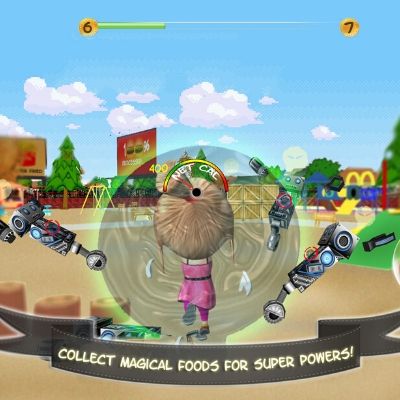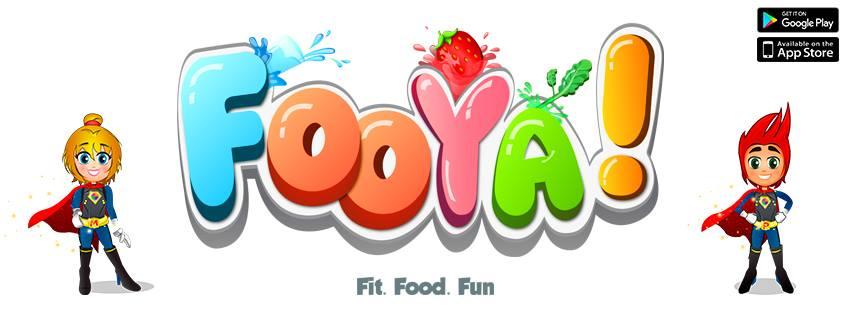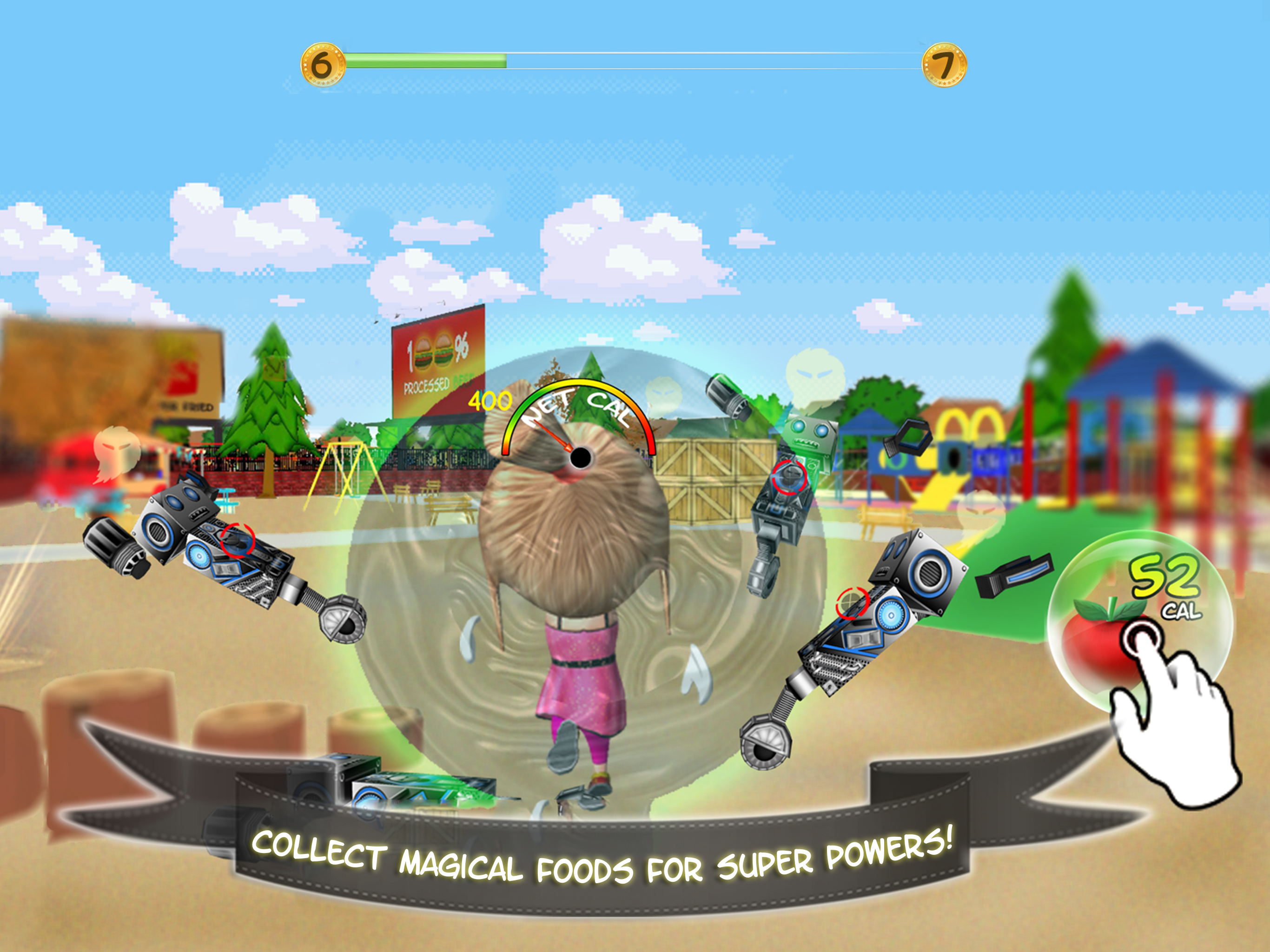






| "At that defining moment, realisation dawned that a home-grown company, headed by a reclusive, reticent relative, has taken a quantum leap in the VR-AI world stage, right here in India." Author, R Chandramouli Director, Moulis Advertising, Content Writer, Journalist |
|
Jurisprudence is often based on precedence. Quoting from a previous ruling in a similar case, judges and lawyers often draw a parallel to the present. Inspiration to write about scientific discovery, medical advancement and technology transformation is likewise. Over the last one month, I published a series of Posts on Linkedin, covering the development of a digital vaccine named FOOYA!, a game-like App that empowers children to make healthier food choices. I confess that while taking the reader through the product cycle, while sharing details of collaboration with world leaders and consistent validation in clinical trials, I had a nagging doubt… about the product’s ability in creating behavioral change, despite researchers at Carnegie Mellon University terming it as a "powerful push forward in disease prevention." Reasons for scepticism are many: Inventions happen in faraway places and not within immediate family, advancements are what you read in a medical journal, breakthroughs are announced in conferences, and deep tech is the subject of prime time interviews. My sense of bewilderment was reinforced by the lack of a parallel (in my knowledge sphere) in the domain where the invention stands positioned – deployment of artificial intelligence and virtual reality for prevention of lifestyle-related diseases. The other problem is the inventor himself. As an amalgam of dreamer, engineer and software professional, he travels far and wide, in his mind space. He does not take time or effort to divulge differentiators or similarities. As an extension of this bewildering conundrum, mundane matters such as how to raise USD 50 million for global launch and operations, or how to engage with PEs / VCs / FOs, are not top priority when ranked with product scalability, evolving innovation, impact mission and development of variants. Hence, the revelation I stumbled upon, evidence of precedence, happened more by chance. Last week, my nephew mentioned in passing, something he should have told me a month ago: A company in a similar space had secured FDA approval in the United States to develop a video game as prescription treatment for children with Attention Deficit Hyperactivity Disorder (ADHD). The encouraging revelation was the start-up had raised more than USD 140 million at the pre-revenue stage, based on commercialization potential, hypotheses and clinical trials. In contrast, here was a bootstrapped, IP-backed innovation with multiple plus points:
To complete my confession, I had wondered all along whether the magnum opus - development of a digital vaccine – was a fantasy in the sci-fi genre. What changed this view? As I said, a casual mention of another company securing early-stage funding. At that defining moment, realisation dawned that a home-grown company, headed by a reclusive, reticent relative, has taken a quantum leap in the VR-AI world stage, right here in India. I confess it’s time to reveal the full impact of FOOYA! as a disruptor in health tech, ed tech and deep tech. Speak up Bhargav Sri Prakash, it’s time to hear the voice of reality… in a world of make believe.Bhargav Sri Prakash brought together a core group that had a vision to change the way knowledge is imparted and measured, around the world. He is a car-maniac and started his first company when he was attending the graduate program in Automotive Engineering at the University of Michigan, Ann Arbor. Besides cars, he has crashed-burned-built-sold companies, holds 3 patents and created FriendsLearn when he was a Fellow of the Kauffman Foundation in 2011. Earlier, he founded and sold Vmerse, known for it’s patented game-based framework for recruitment of college applicants. |

| "We can educate the new gen child with a “digital vaccine” delivered through a gamified App named FOOYA!" Author, R Chandramouli Director, Moulis Advertising, Content Writer, Journalist |
|
Medical examination. Clinical investigation. Antibiotics. Cure. Recovery. Another illness. Encore. Did you know even before COVID-19 came upon us, a study by Centers for Disease Control revealed that life expectancy is declining in the United States? Despite advances in medical science, cause of this incongruity could be overtreatment and drug overdose. Hence, focus needs to be on disease prevention. Agreed, a significant proportion of the world’s population are adults, and hereditary or lifestyle diseases having manifested, only option is medication. Yet, if we take a younger audience, we can empower them in early life stages, by inducing healthier habits. We grew up with teachers holding picture books and advocating goodness of fruits, vegetables and grains. We can educate the new gen child with a “digital vaccine” delivered through a gamified App named FOOYA! The App works as part of a school health co-curricular program. As a precursor to global launch, children at D.A.V School, Chennai, play FOOYA! Clinical trials conducted on over a thousand children, by Carnegie Mellon, Johns Hopkins, Baylor, NUS and Stanford affirm that FOOYA! has positive impact on neuro-behaviour-physiological modulation. Only catch… got to catch them young! |

| "...The unknown startup helped unravel non-invasive technologies clinically validated to prevent disease. Without drugs." Author, R Chandramouli Director, Moulis Advertising, Content Writer, Journalist |
|
Question: Why did one of the world’s largest biotech companies claim Intellectual Property for an emerging field... pioneered by researchers at Carnegie Mellon University and a Silicon Valley start-up? Ans: Because the unknown startup helped unravel non-invasive technologies clinically validated to prevent disease. Without drugs. Pitched against a billion dollar company, you would expect a predictable end, of the start-up being crushed by the verdict of the US Patent and Trademark Office. However, legal representation by a team at Stanford Law School helped settle the case in favor of the start-up. What did the biotech major file for? Exclusive claim to own the emerging field of “Digital Vaccines.” What triggered the case? Publication of research papers affirming the efficacy of digital vaccines during Randomized Control Trials conducted by Carnegie Mellon and Johns Hopkins University. In a way, the attempt to own the IP was an inverse validation of the start-up’s potential in the years ahead. If the company’s drug-less product could help prevent lifestyle diseases, it follows that over time less drugs will be prescribed or sold. If you have been reading my posts, you know the game, and start-up’s name. FOOYA! from FriendsLearn. |


|
In healthcare too, software can play a pivotal role. |
|
Can software help regulate cholesterol? Can AI slow down onset of diabetes? Can screen engagement prevent a heart ailment? Consider this: Xerox ruled offices… Microsoft brought in document creation, duplication and transmission through software. In the West, JCPenney, Sears and Kmart were go-to companies for shopping. Amazon created software to enable the experience online. Uber cut down the need to own a car. In healthcare too, software can play a pivotal role. Experts in analytics, #nutrition and informatics have concluded, after 8 years of research on a gaming product called FOOYA! that software-induced neurocognitive training, if initiated at the paediatric stage, can boost defence mechanisms that resist disease. How does this work? Certain regions of the brain empower self-control. If addressed in the growing years, if signals are sent to decide between, let's say oatmeal porridge or sugar-added cereal, or fruits instead of doughnuts, such sustained messaging can result in a healthier future. Clinical trials at Stanford have confirmed that FOOYA! produces “statistically significant health outcomes towards positively influencing healthier food choices.” Great news for parents, game time for kids, potential target for PEs. |


|
"In the wider world, in the scramble for the Tab from age three, FOOYA! may emerge as a healthy gaming alternative." |
|
Go for a headshot. Get highest number of kills. Create collateral damage. That’s how thousands of children spend hours online. What if your kid engaged in a battle of health? Blasted to oblivion processed foods. Internalized, while playing, the benefits of wholesome grains, fruits and vegetables. Name of the game: FOOYA! Developer: FriendsLearn. Founder: Bhargav Sri Prakash. Clinical trials have found the game results in subtle and safe changes in neuro-behaviour and physiology originating in the brain, which can lower the risk of non-communicable diseases such as diabetes, hypertension and heart ailments. Every discovery or invention is propelled by curiosity and passion. Newton wondered why the apple dropped, James Watt was inspired by the steam kettle, and the founder of Waymo figured driver-less cars can cause less accidents, than with drivers. Bhargav, a former national tennis champion player, graduate in automotive engineering from University of Michigan, and holder of 3 US patents, created the product as a gift for his children. In the wider world, in the scramble for the Tab from age three, FOOYA! may emerge as a healthy gaming alternative. For parents, the epic food fight may be far more palatable than their ward scoring a headshot. |


|
Drug without drugs, vaccine without injection, change in children’s lifestyle as they play, a game called Fooya! |
|
Is India game for a Deep Tech product? A “category first?” If that sounds surreal, read my review… to dispel disbelief and propel a generation towards healthier food choices. How do you define a Deep Tech company? Its product does not have a prior blueprint, pattern or lineage. Check out three companies from the West to appreciate the pioneering part: Blue Origin (life in space), Hyperloop (pod travel), Waymo (driver-less cars). If an Indian has come up with deep tech, where are arc lights and breaking news? In this Silicon Valley to Chennai story, the protagonist prefers working behind the scenes. Product development, beta version, clinical trials: Done. US Patent: Filed and granted. Intellectual Property dispute with a multi-billion-dollar drug company attempting to capture market potential: Heard and settled by United States Trademark and Patent Office. Collaboration with four world leaders in academics and healthcare: Going strong for last 7 years. Commercial launch: Soon. What does the technology achieve? Drug without drugs, vaccine without injection, change in children’s lifestyle as they play, a game called Fooya! Watch the Stanford researcher on video to know more. *Link opens in a new tab. |


|
"You win only when you choose healthy food and beverages instead of fatty, salty snacks or sugary drinks. As the game progresses, participants develop healthier food habits, an outcome validated in clinical trials." |
|
Unknown, Unperturbed: Unicorn hunters in the VC world, editors keen on a good story and columnists looking for chunky content, missed this by a mile. At a NASSCOM event in February 2020 featuring changemakers, the line-up included Byjus, Urban Clap, Delhivery and Shadowfax. Last in the list... FriendsLearn, a Silicon Valley start-up with operations in India. Flagship product “Fooya!” an online game for 6 to 16 years age group (www.fooya.com). The gaming process creates a digital vaccine based on a synthesis of neuroscience, cognitive science, and immersive mobile-VR technology. You win only when you choose healthy food and beverages instead of fatty, salty snacks or sugary drinks. As the game progresses, participants develop healthier food habits, an outcome validated in clinical trials. The unknown company is being nurtured by Carnegie Mellon University, Stanford School of Medicine and John Hopkins University. The founder, Bhargav Sri Prakash, is my nephew. Unperturbed by absence of attention, enthused by beta testing in select schools, Bhargav has plans for a commercial launch, without fuss or frills. You would too, if Carnegie Mellon termed your invention as "the new frontier for disease prevention.” *Link opens in a new tab. |

|
Digital Vaccines are a subcategory of digital therapeutics: Evidence-based prevention approach using digital technologies They are a safe & low-risk mechanism for dynamic neuro-behavioural physiological modulation, which nudges positive human behaviour via neurocognitive training. |